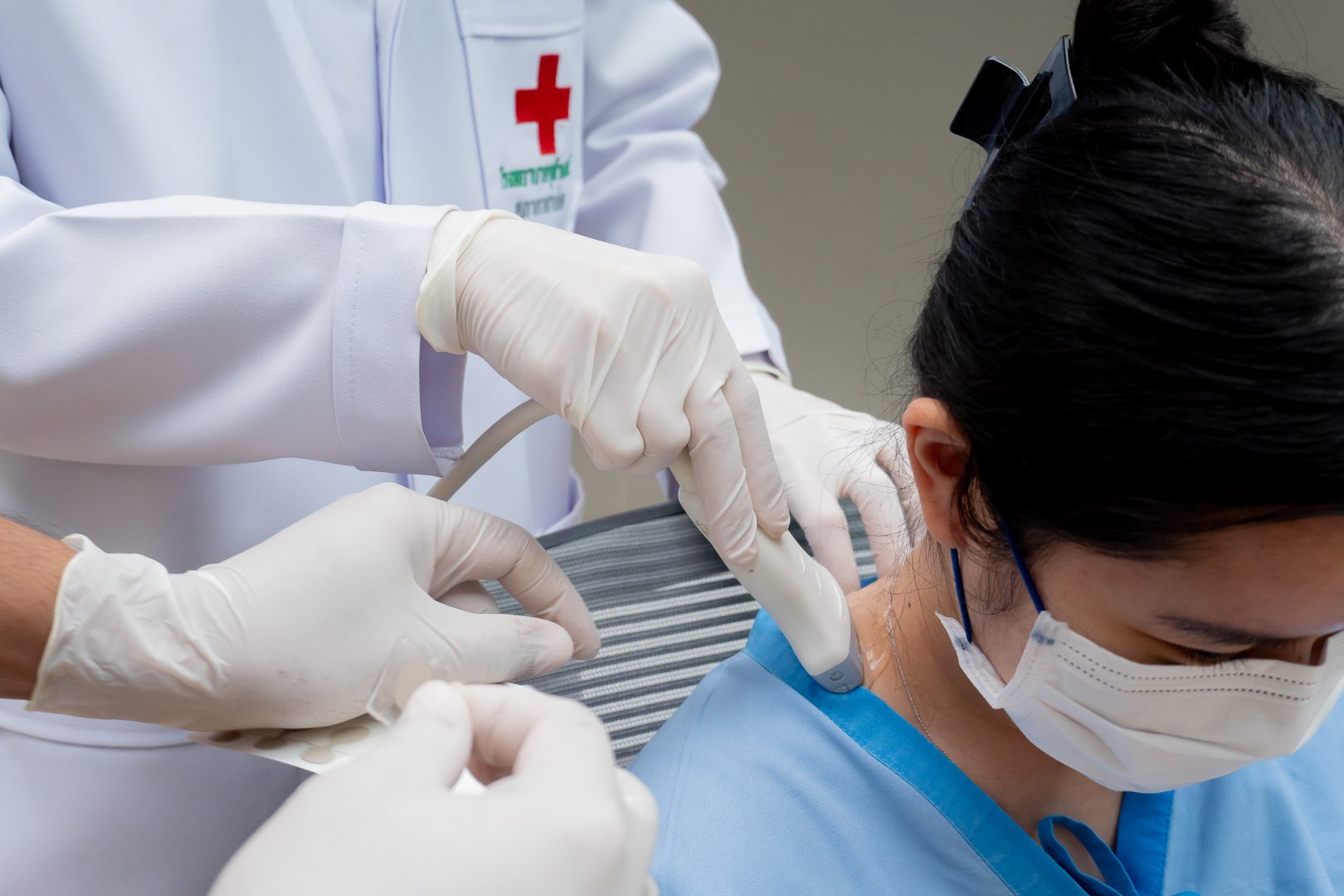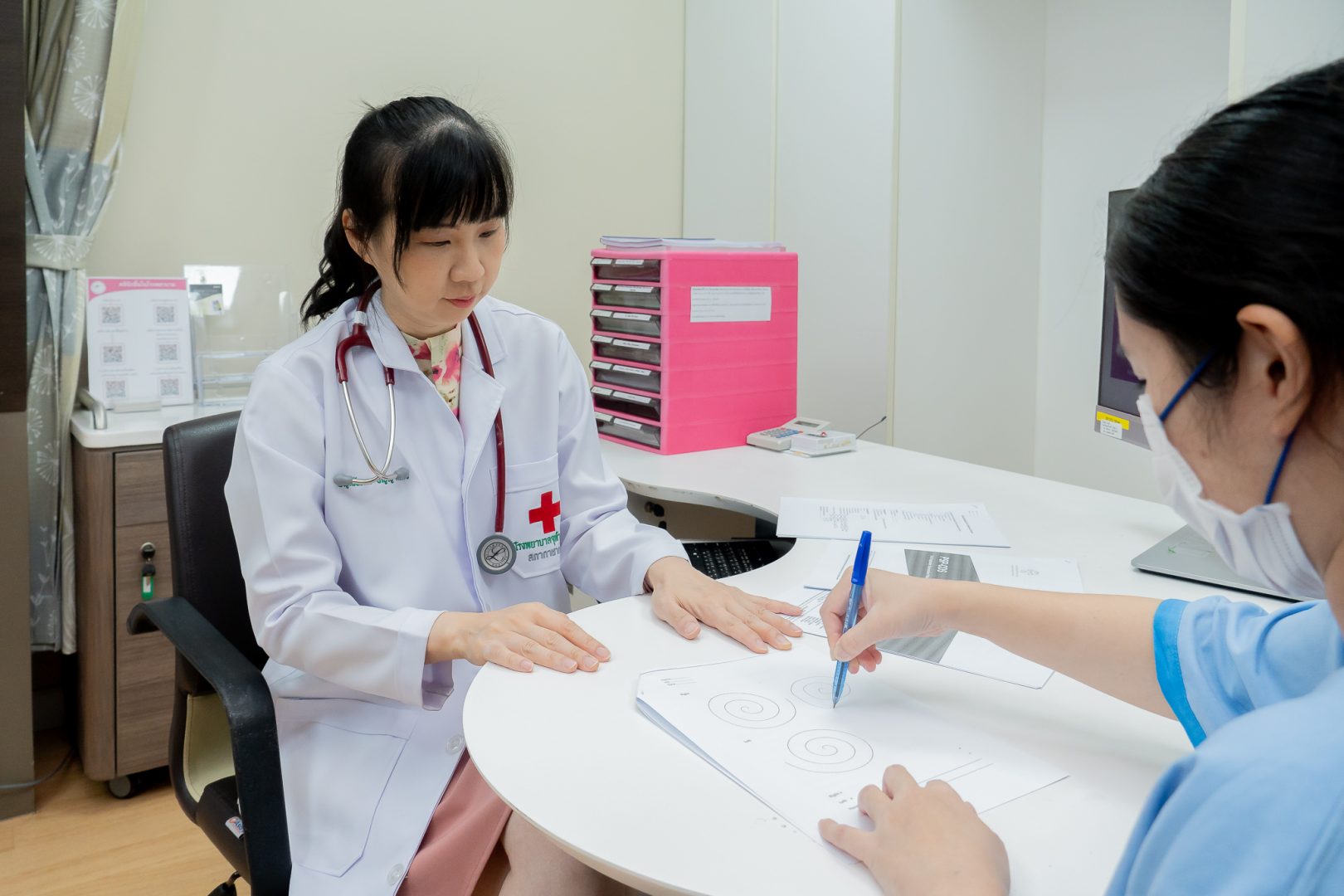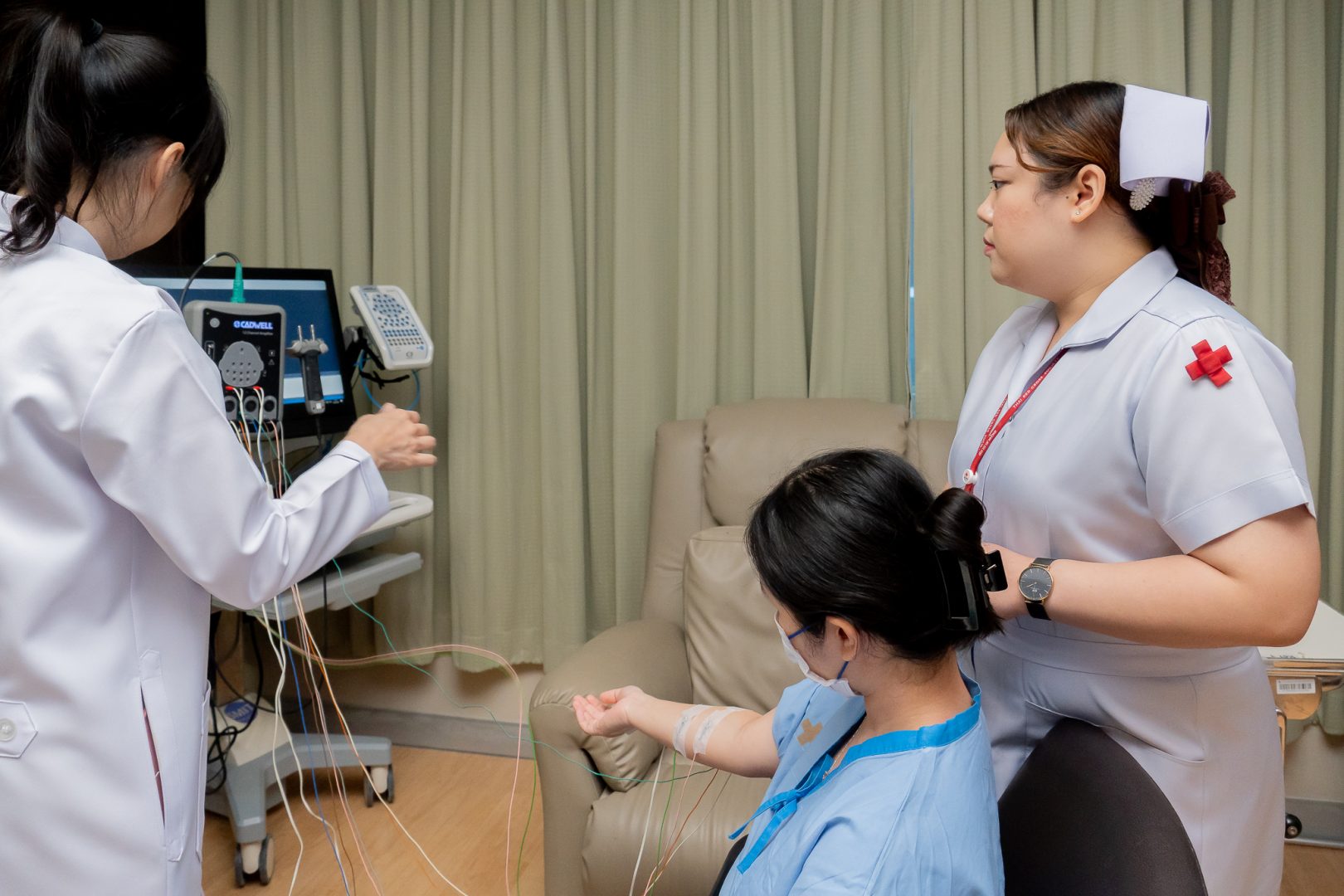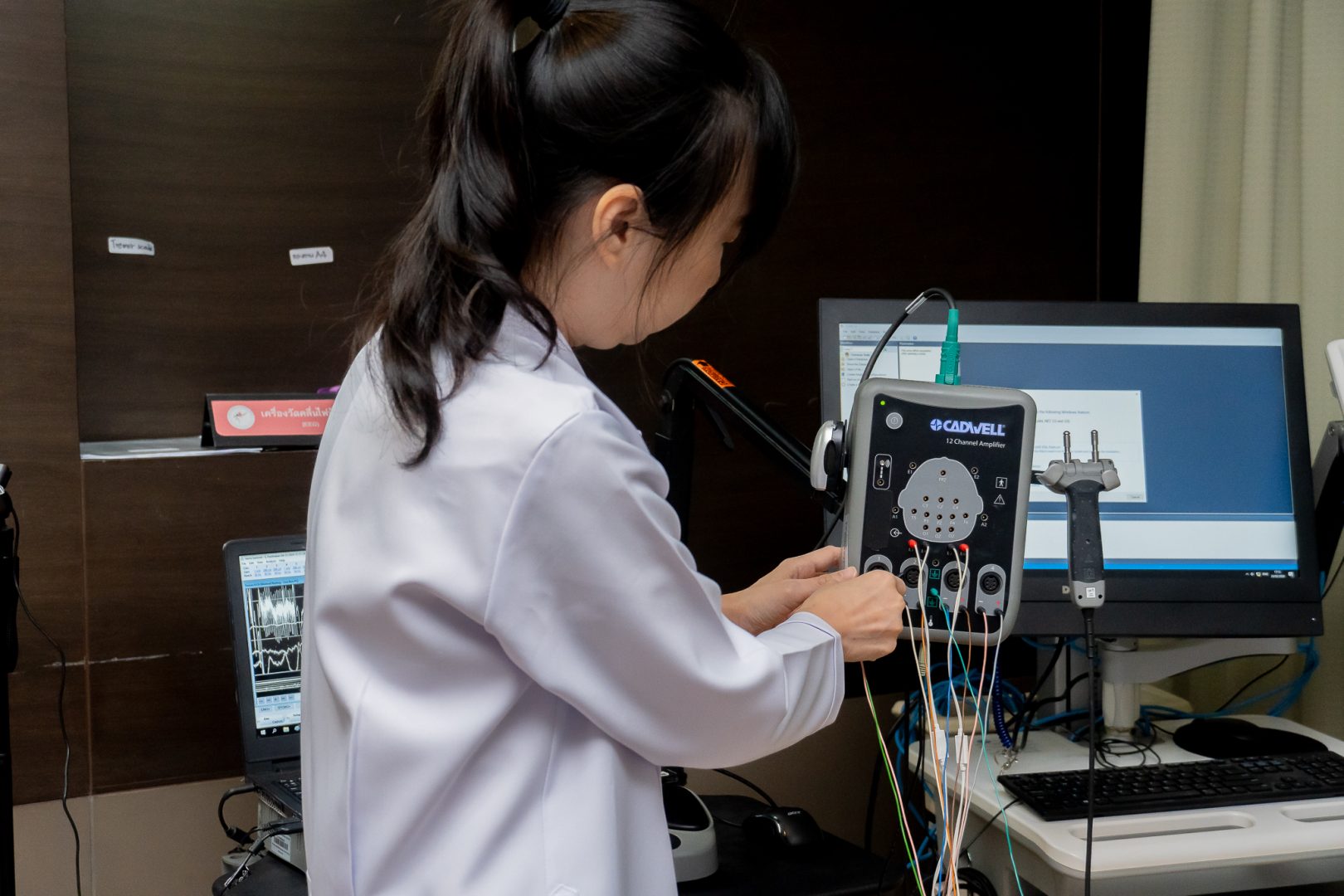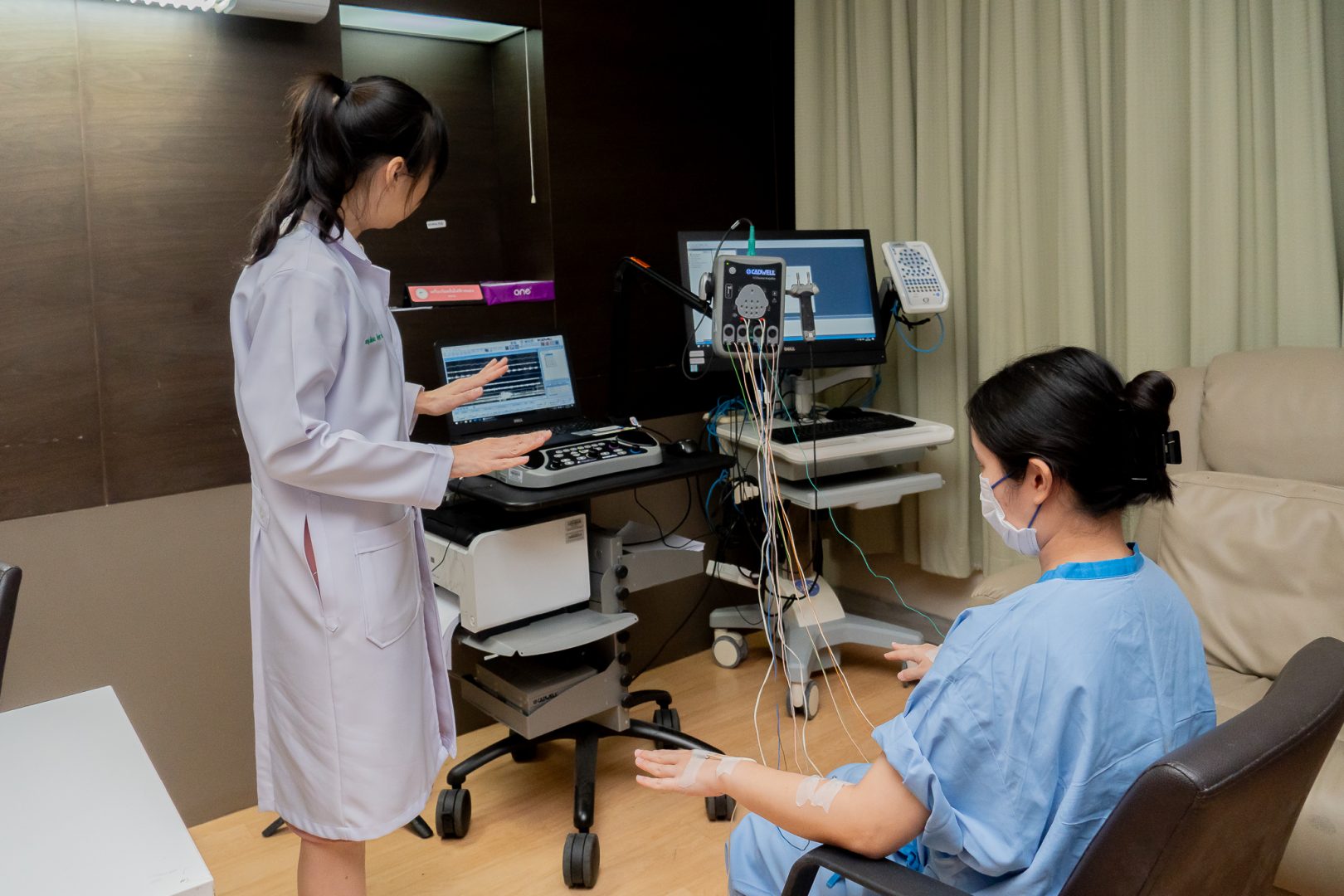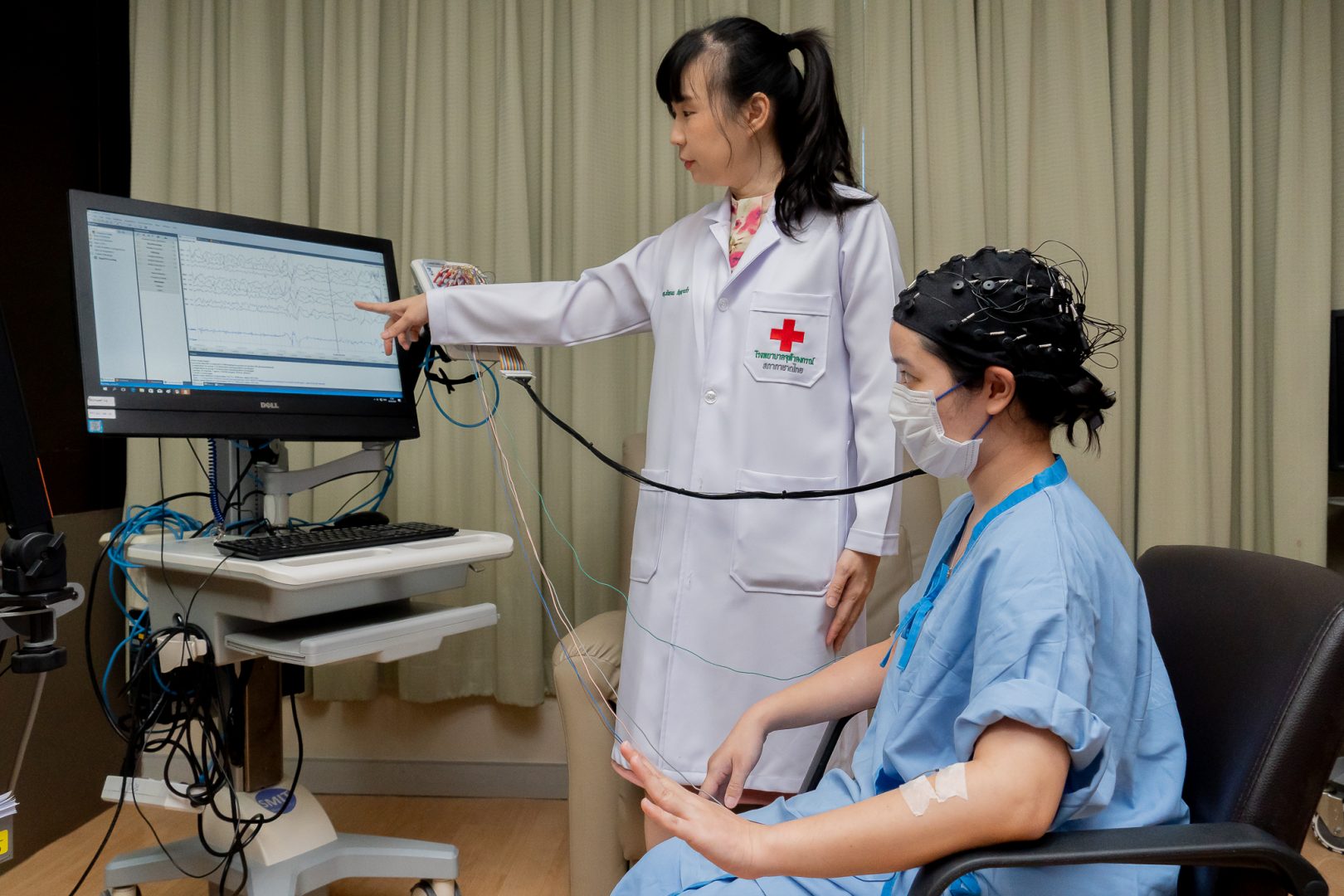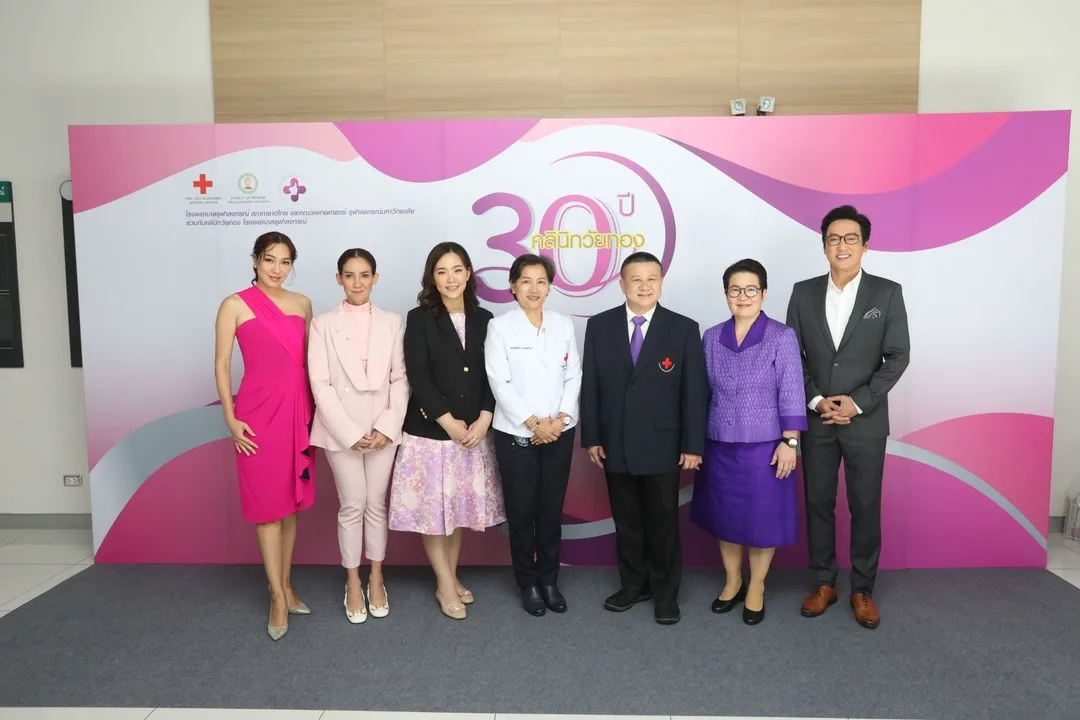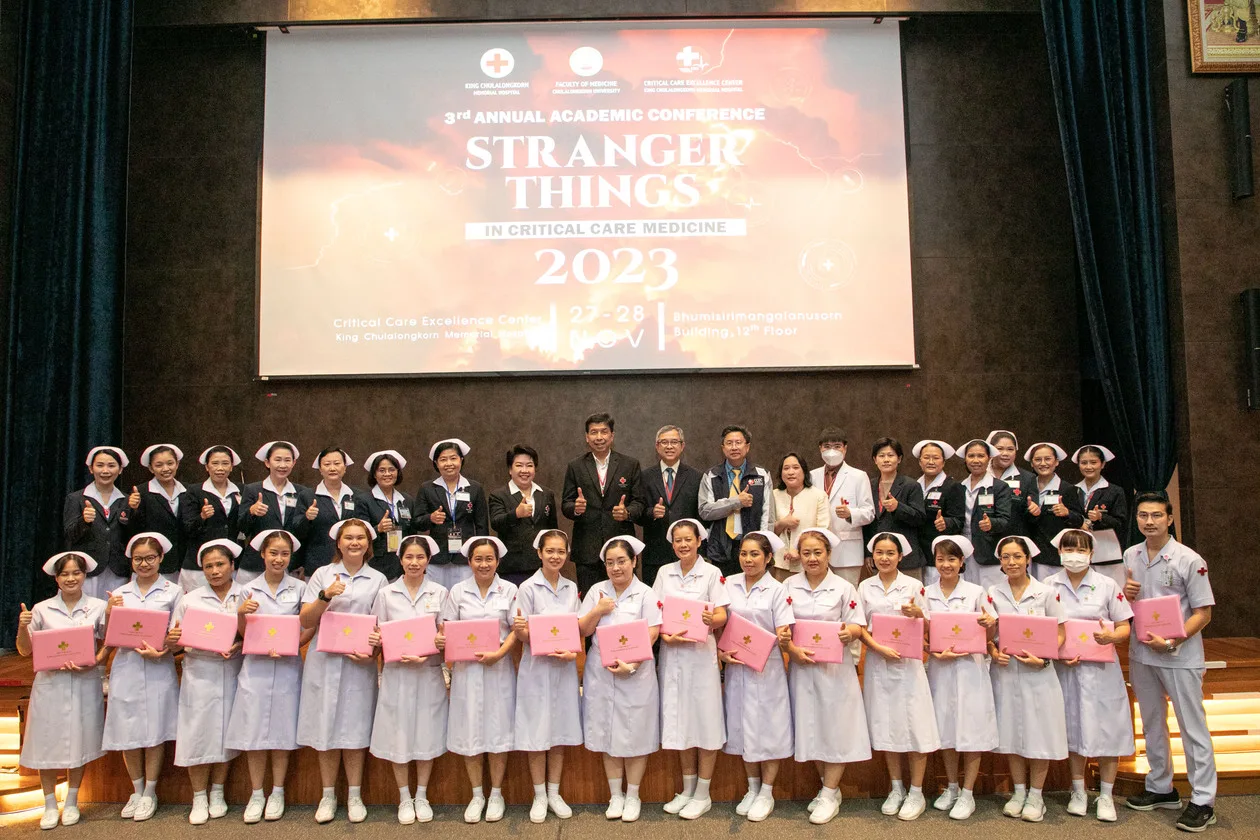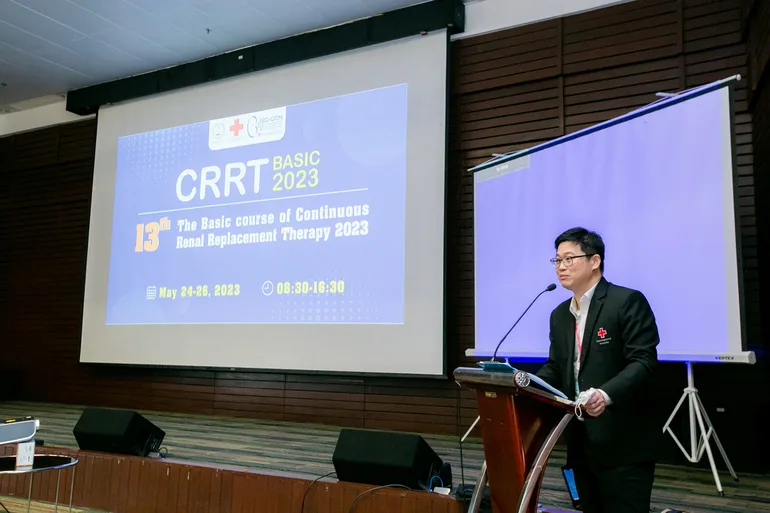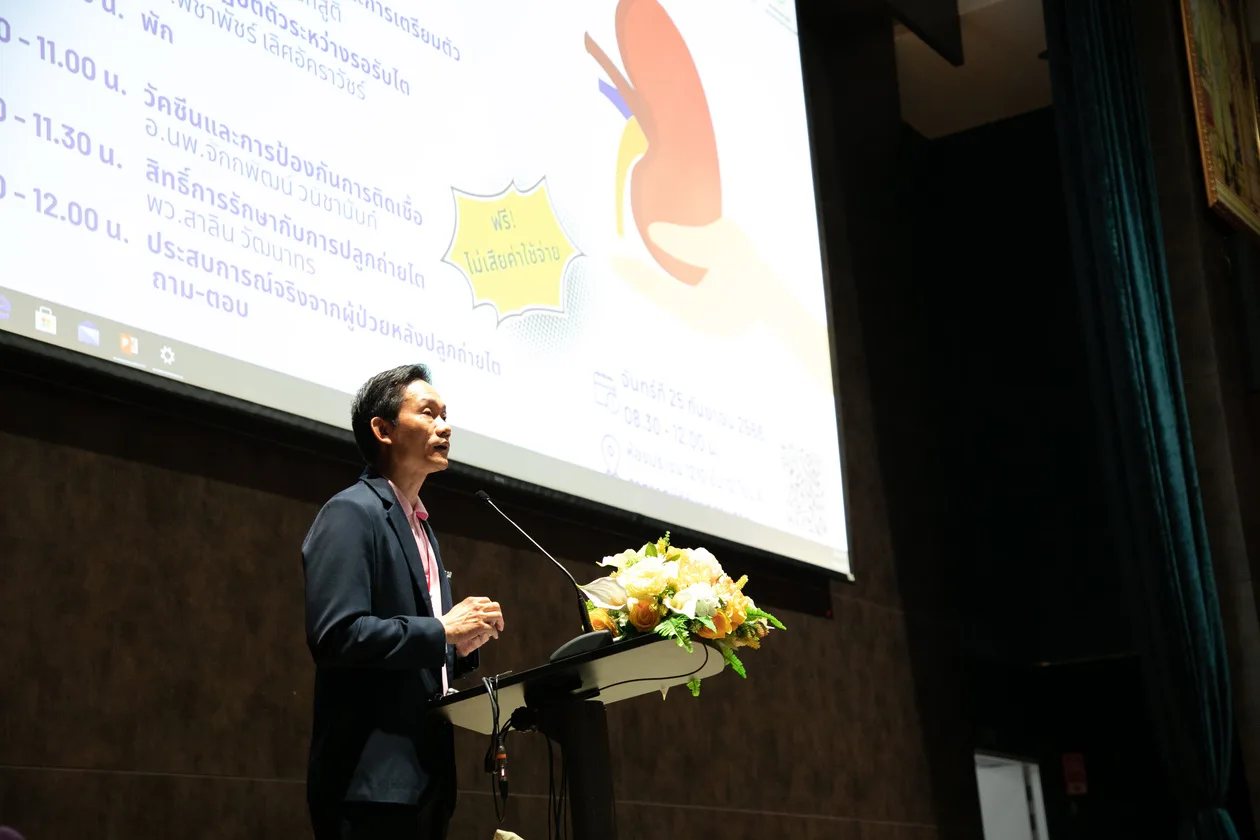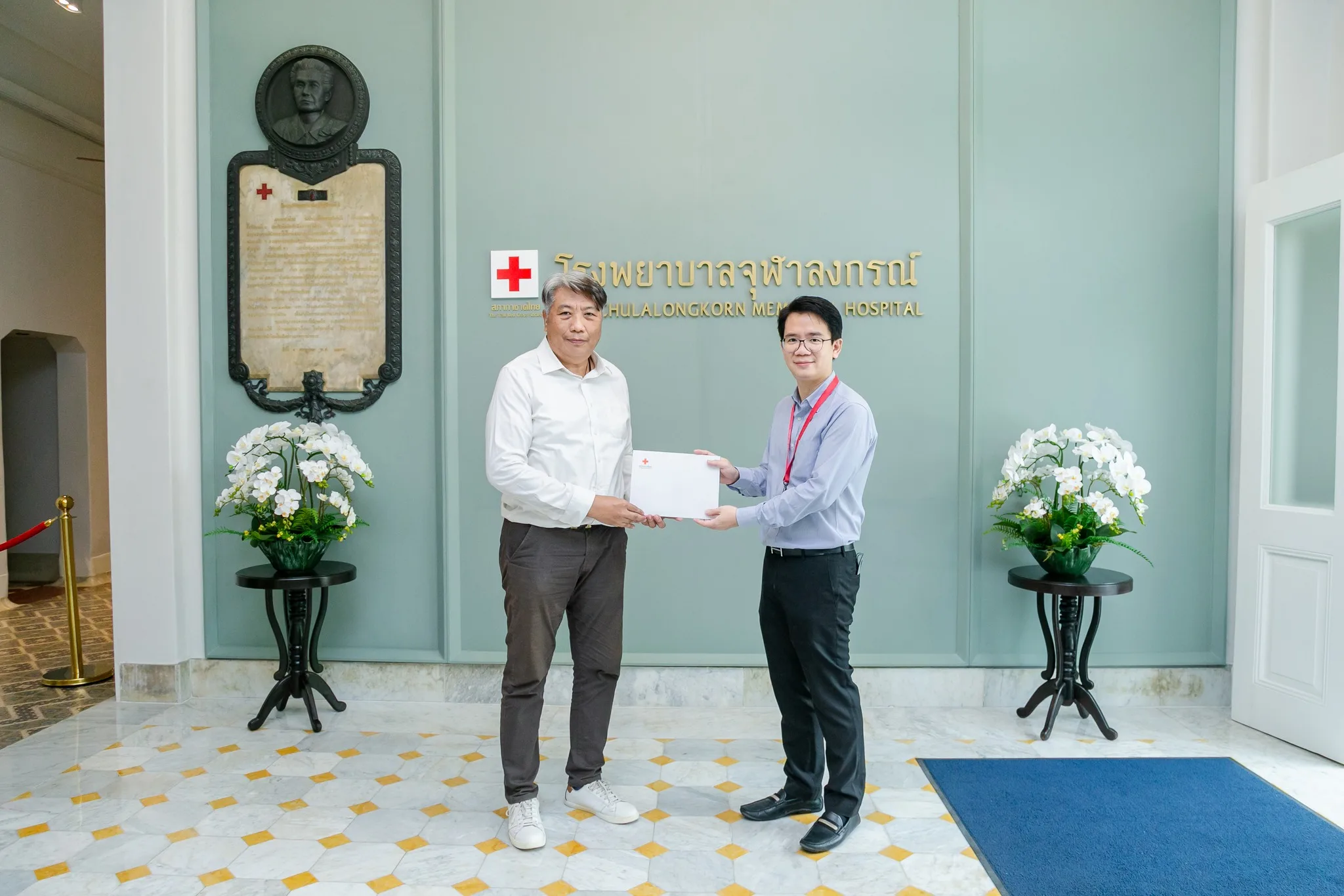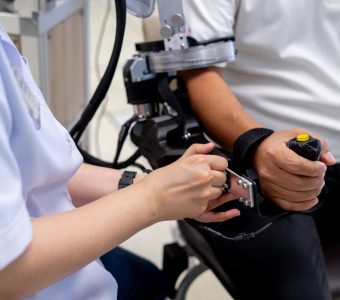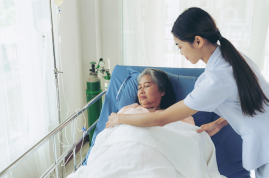The journey of Chulalongkorn Center of Excellence for Parkinson’s Disease and Related Disorders started in 2006. The center was established as Chulalongkorn Movement Disorders Center. It was the first center in Thailand dedicated to the care of Parkinson’s disease and other movement disorders patients. In the same year, it performed the first frameless Deep Brain Stimulation (DBS) in Asia.
Since then, the Center has been the forefront of Movement Disorders education, research and care in Thailand. The foremost concern is for the patients, caregivers and their wellness. The Center hosts a variety of educational programs for patients and caregivers, and a very active and large PD Support Group. Patients and caregivers meet at least once a week to share their experiences and learn about PD. Many activities are organized on a regular basis, such as, art and music therapies. Recently, a nationwide campaign was launched on TV and social media to educate the public about symptoms of Parkinson’s disease.
In the education field, the center established Movement Disorders fellowship program in 2007, which is the first in Thailand. It has held numerous seminars and camps to educate physicians, residents and other medical professionals in the field of movement disorders throughout the country. In 2010, National Parkinson’s Disease Registry to study Parkinson’s prevalence and its core features in Thailand was set up. In 2015, it extended its education beyond the borders of Thailand. An MOU between UCLA (USA) and the Center was signed, followed by collaboration with King’s College London and Juntendo University, Japan in the following years.
In the field of research, the Center has been regarded as an exemplary research and innovation center. Many of the Center’s innovation include laser-guided walking stick, tremor’s glove, tremor and nocturnal monitoring devices. Medical and non-medical professionals from around the country visit the center to learn from its experiences.
The Center is still young and on its mission to improve the lives of Parkinson’s patients. The road is still long ahead as we strive to bring the best of care to our patients.
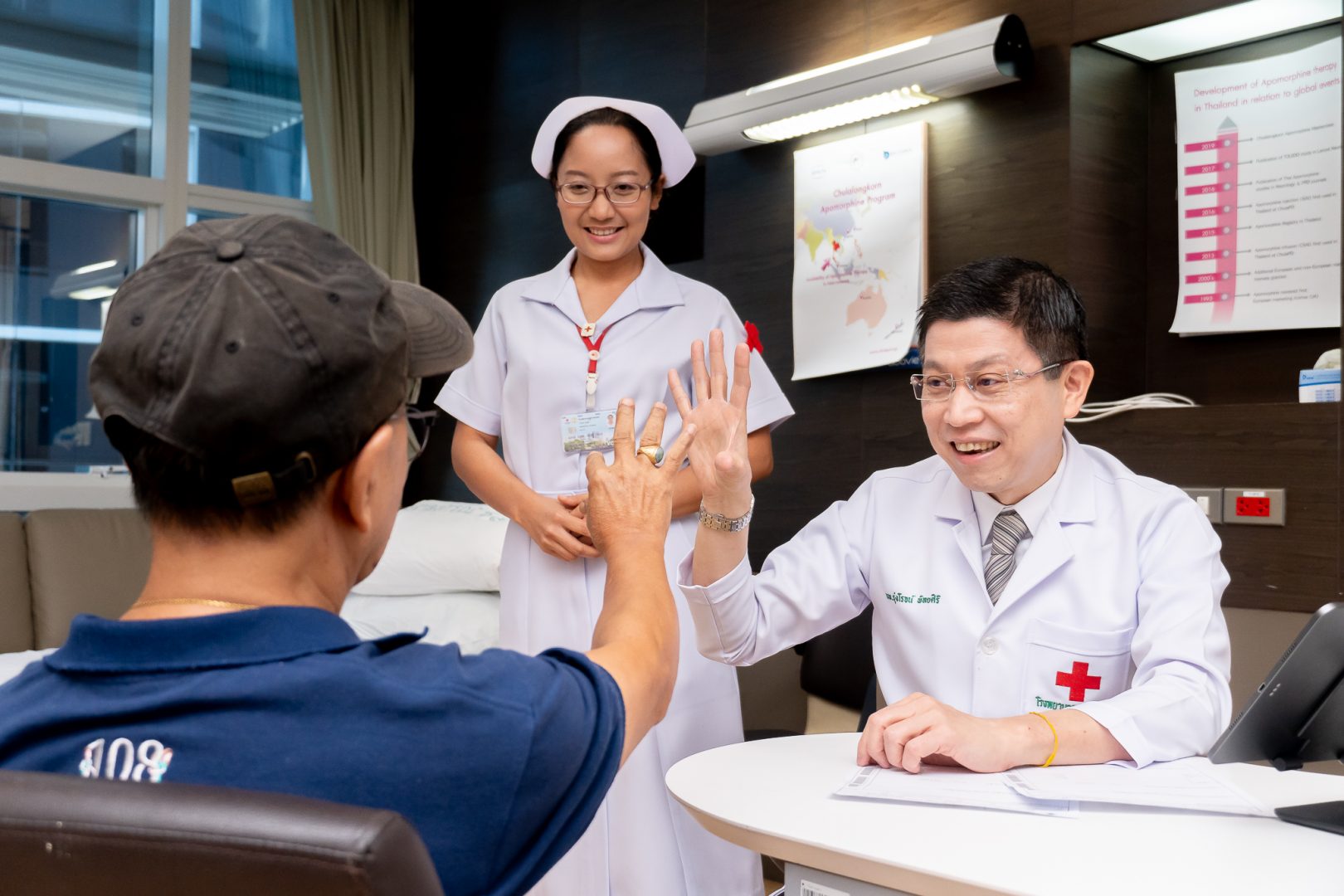




Obligation
To diagnose, treat, and care for patients with Parkinson’s disease and related disorders using the latest knowledge and continuous advancements. To lead and develop education and research in the field of Parkinson’s disease for nurses, doctors, and medical personnel, while operating with honesty, responsibility, compassion, and high ethical standards.
Vision
Chulalongkorn center of Excellence for Parkinson’s disease & related disorders, King Chulalongkorn Memorial Hospital is a prototype center for medical treatment and research of Parkinson’s disease and related holistic diseases together with innovation both nationally and internationally.
Mission
- To provide diagnosis, treatment and care for Parkinson’s patients and the holistic movement disorder group with knowledge and advanced technology, with continuous development to enhance the quality of life of patients and families.
- To initiate and develop teaching and research in Parkinson’s disease and movement disorders for doctors, nurses and medical personnel at national and international levels.
- To complete Research and development of innovations in Parkinson’s disease and movement disorders both nationally and internationally.
- To be a center that operates with integrity, responsibility, generosity and morality.
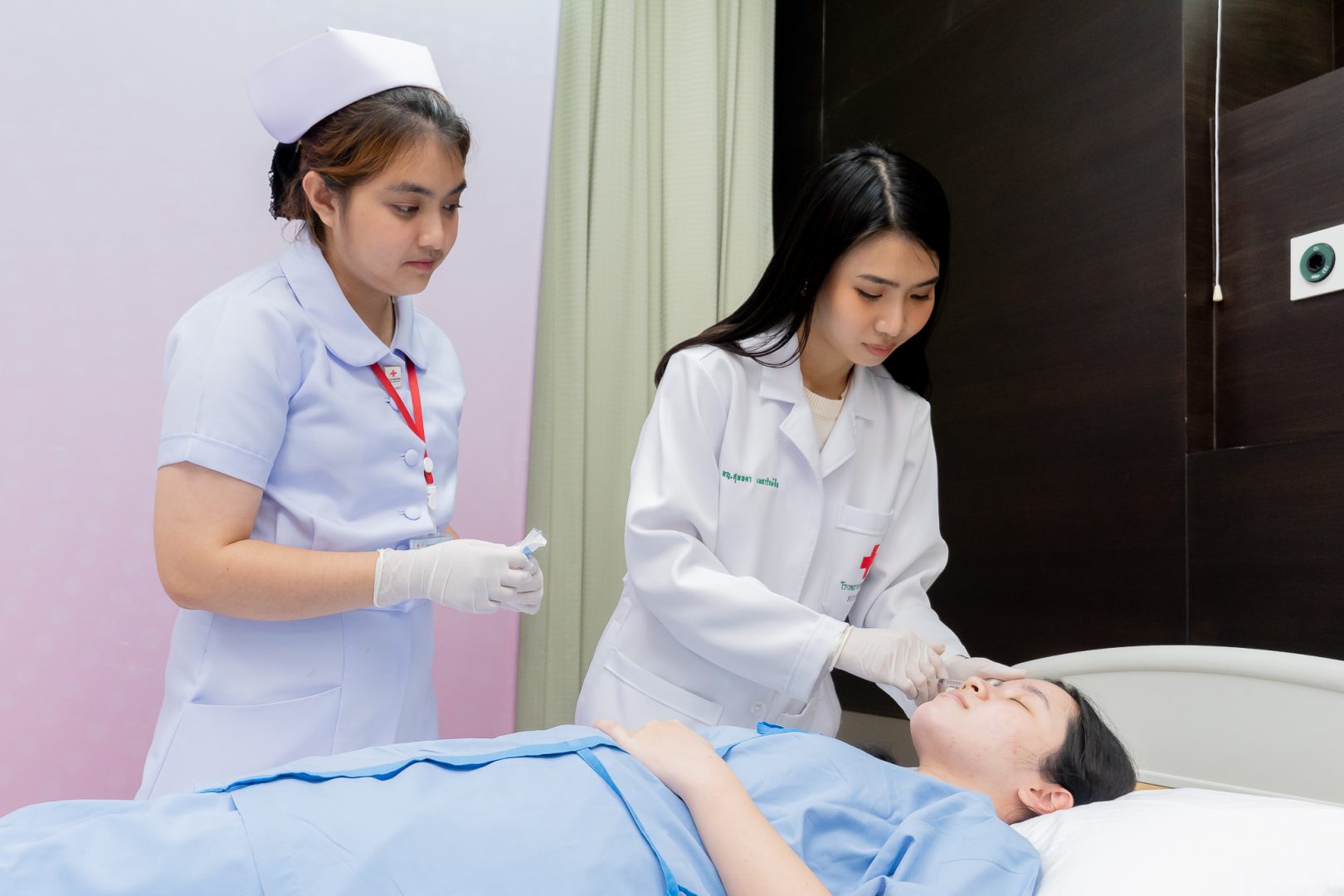
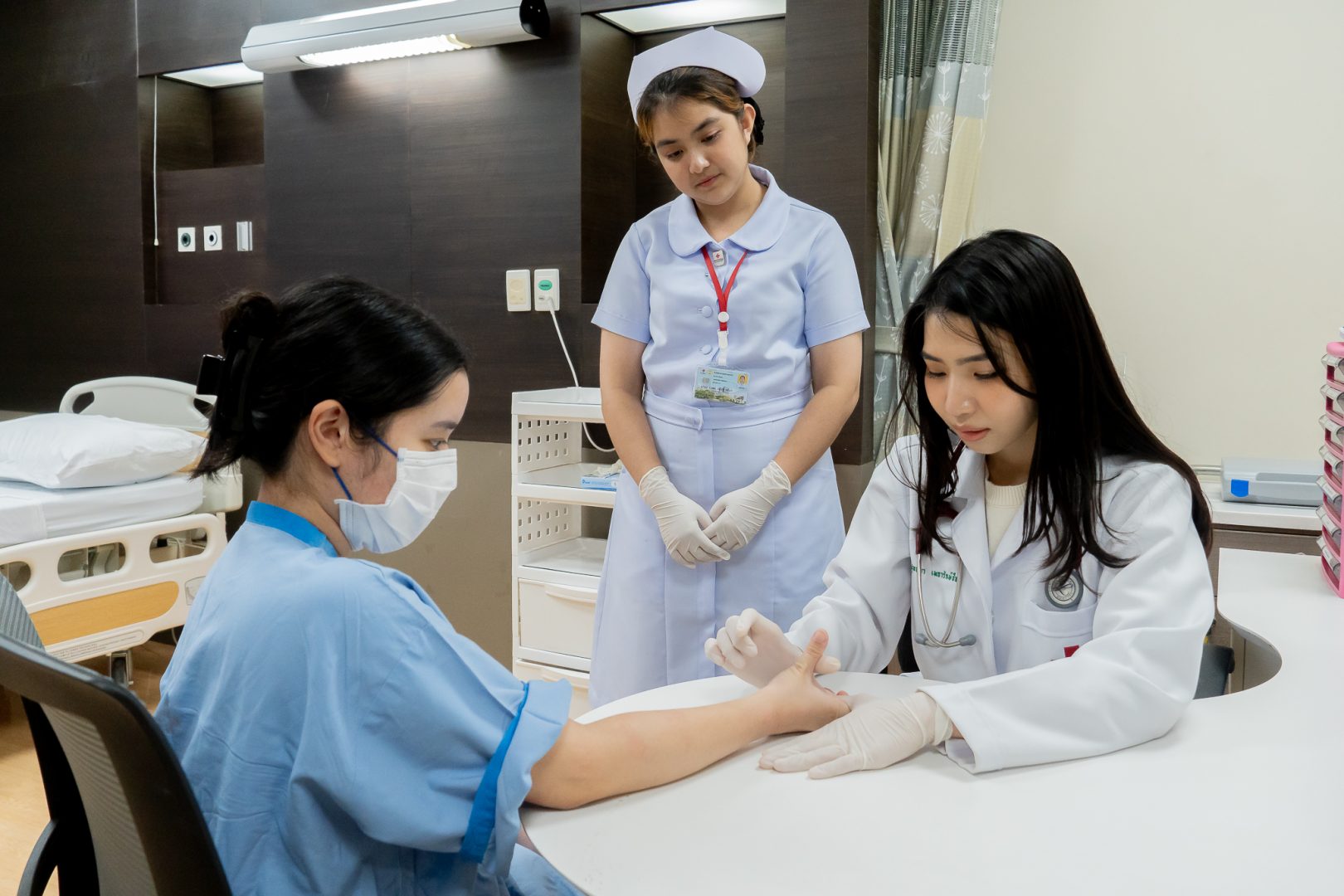
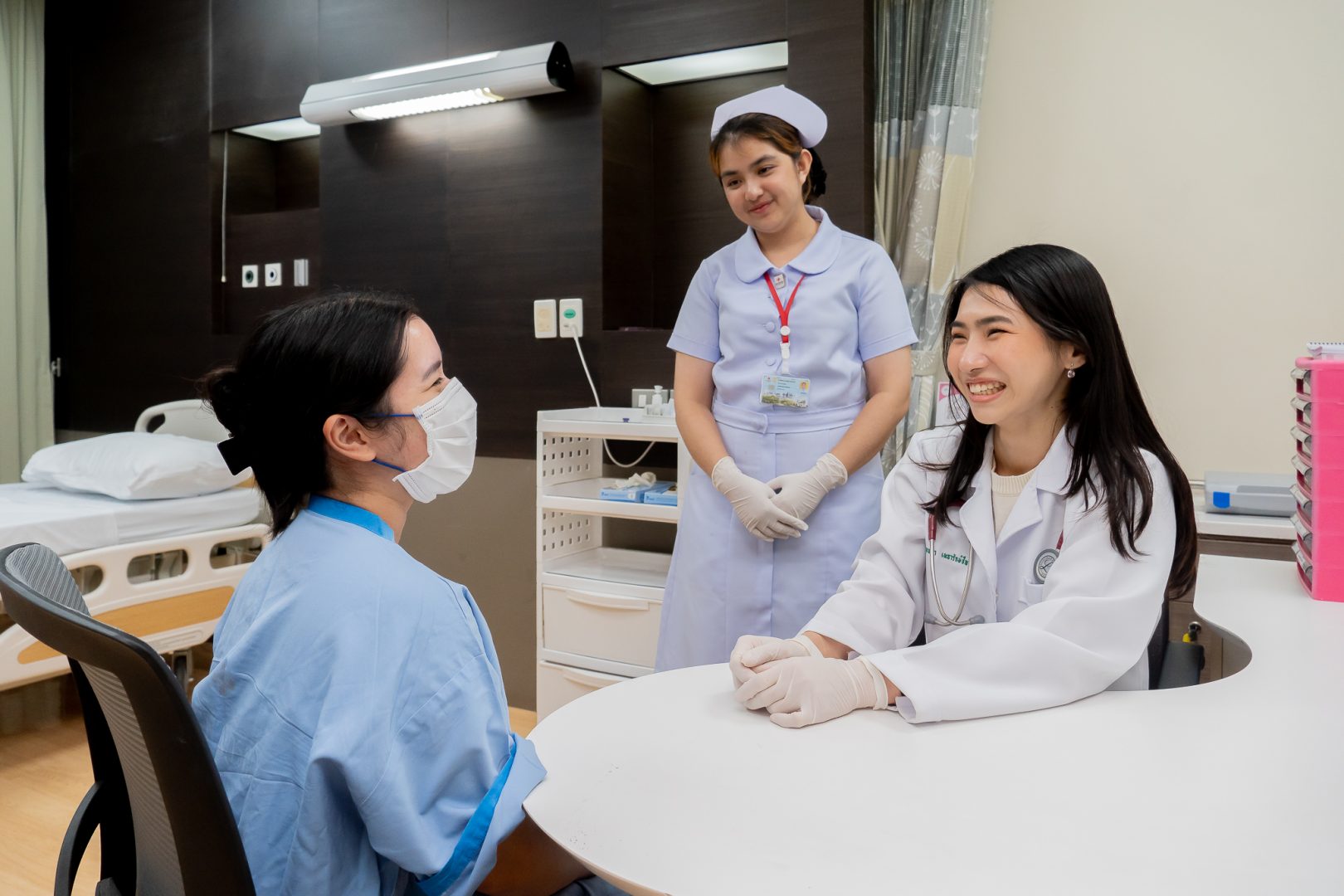
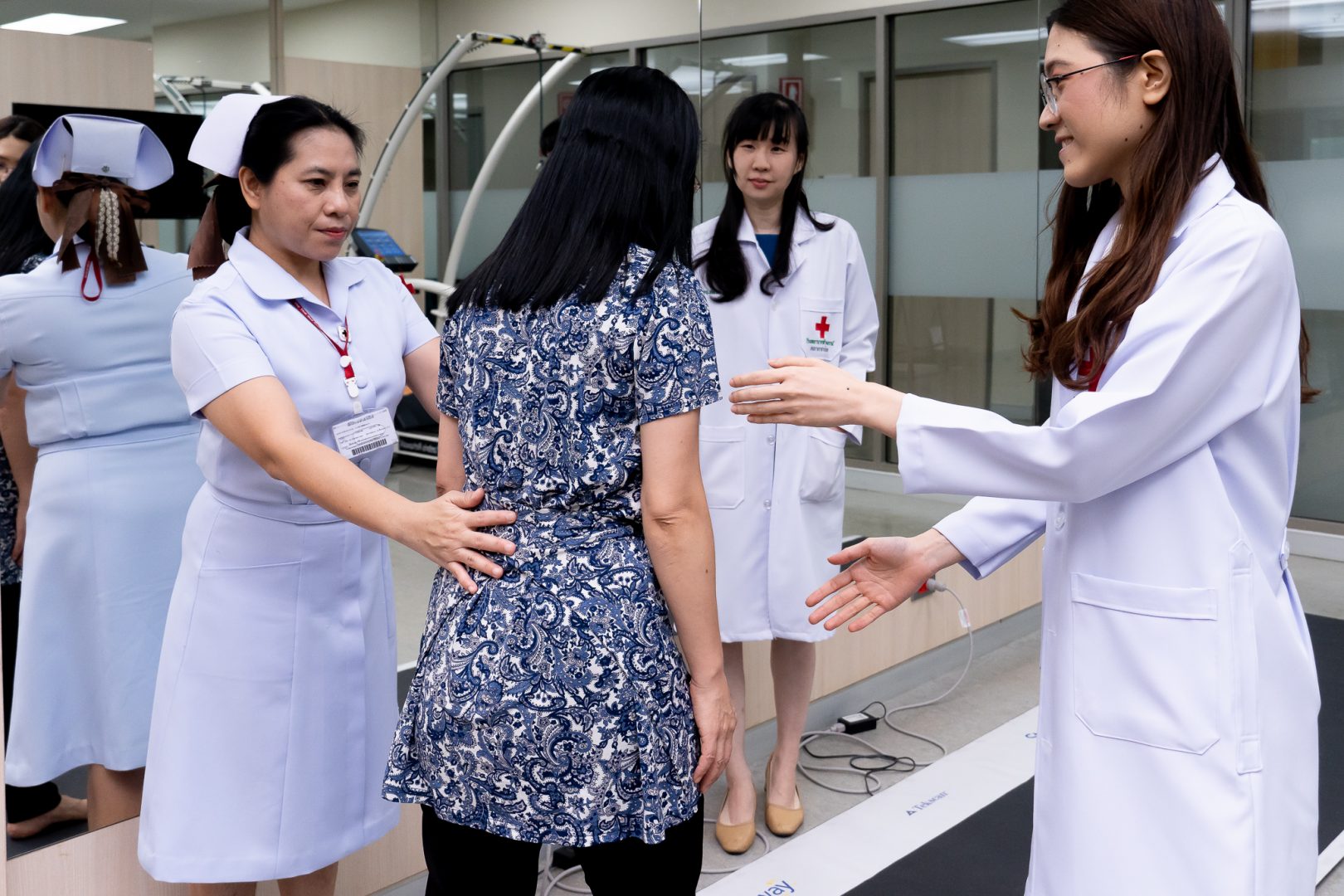



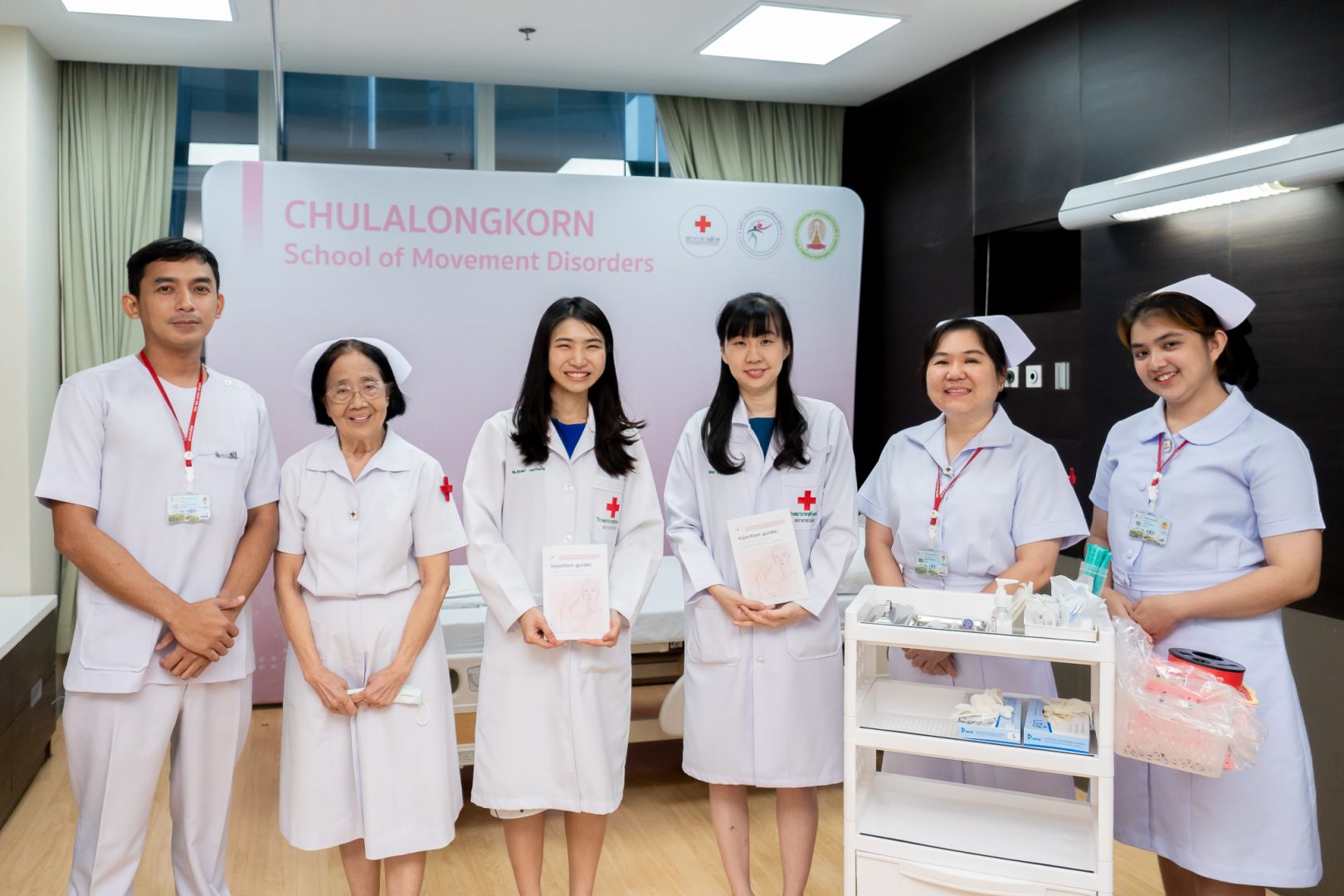
Support Activities
Chulalongkorn center of Excellence for Parkinson’s Disease & Related Disorders provides various service through its clinics as follow:
1. Parkinson’s Clinic
Providing comprehensive care for patients diagnosed with Parkinson’s disease by specialized doctors and expert nurses, being the first center of its kind in Thailand. The clinic uses advanced medical knowledge, tools, and innovations to offer timely and effective healthcare solutions for both patients and their families.
2. Spasticity Reduction Injection Clinic
The clinic administers Botulinum Toxin injections for the treatment of dystonia or severe spasms that cannot be managed with oral medication and have complex symptoms. The clinic uses EMG (Electromyography) injections and ultrasound to enhance the precision of muscle injections for optimal treatment efficacy.
3. Hyperkinetic Clinic
To diagnose and care for patients with Parkinson-plus syndromes, which account for approximately 30-40% of movement disorders. These conditions have complex symptoms beyond tremors and slow movements, such as unsteady gait, frequent falls, and low blood pressure. The clinic provides comprehensive care for patients with these complex Parkinson-plus syndromes.
4. Movement Neurology Genetic Clinic
To provide diagnostic and treatment services for patients diagnosed with genetically related diseases or with a family history of genetic disorders.
5. Sleep Well Parkinson’s Clinic and abnormal movements during the night
To diagnose, treat, and care for Parkinson’s disease patients with contemporary knowledge, continuously advancing education, research in Parkinson’s disease, for nurses, physicians, and medical personnel. Operating with integrity, responsibility, supportiveness, and ethical principles.
6. Advanced Parkinson’s Clinic
- Deep Brain Stimulation (DBS) Surgery Clinic
- Continuous Subcutaneous Apomorphine Infusion Clinic
Provides care for severe Parkinson’s disease patients who do not respond to oral medications and require advanced treatment options such as DBS surgery, continuous subcutaneous apomorphine infusion, and continuous intestinal infusion therapy. Patient care is conducted by a multidisciplinary team including neurologists specializing in Parkinson’s disease, gastroenterologists, neurosurgeons, Parkinson’s disease specialized nurses, and pharmacists with expertise in Parkinson’s medications.
7. Parkinson’s clinic walks well
Provides diagnostic services for abnormal walking and posture issues in Parkinson’s disease patients and other movement disorders using advanced gait and posture measurement tools. Evaluates walking and posture problems accurately and recommends physiotherapy to prevent fall risks in patients with walking and posture issues.
8. Neuropsychiatric Clinic
The unit serves as a clinic staffed by two specialized physicians: a Parkinson’s disease specialist and a geriatric psychiatrist. Its mission is to treat psychological, emotional, and spiritual symptoms commonly associated with Parkinson’s disease, which can cause significant distress. The unit provides treatment and guidance for patients, caregivers, and families.
9. Electrophyorology clinic
Specializes in diagnosing movement disorders that cannot be diagnosed through regular physical examinations using advanced electrical diagnostic techniques. Examples include measuring tremors with specialized tools or assessing dyskinesia using brain electrical wave measurements. The unit aims to provide accurate diagnosis and appropriate treatment.
10. Day Care Patient Management Clinic
Providing continuous patient care throughout the day for 2 weeks, in cases where patients are assessed during continuous subcutaneous medication administration (Apomorphine).
11. Telemedicine Parkinson’s Clinic
Due to the Covid-19 infection situation in 2019, continuous examination and assessment of Parkinson’s disease symptoms have been conducted through telemedicine technology.
Parkinson’s friends Club

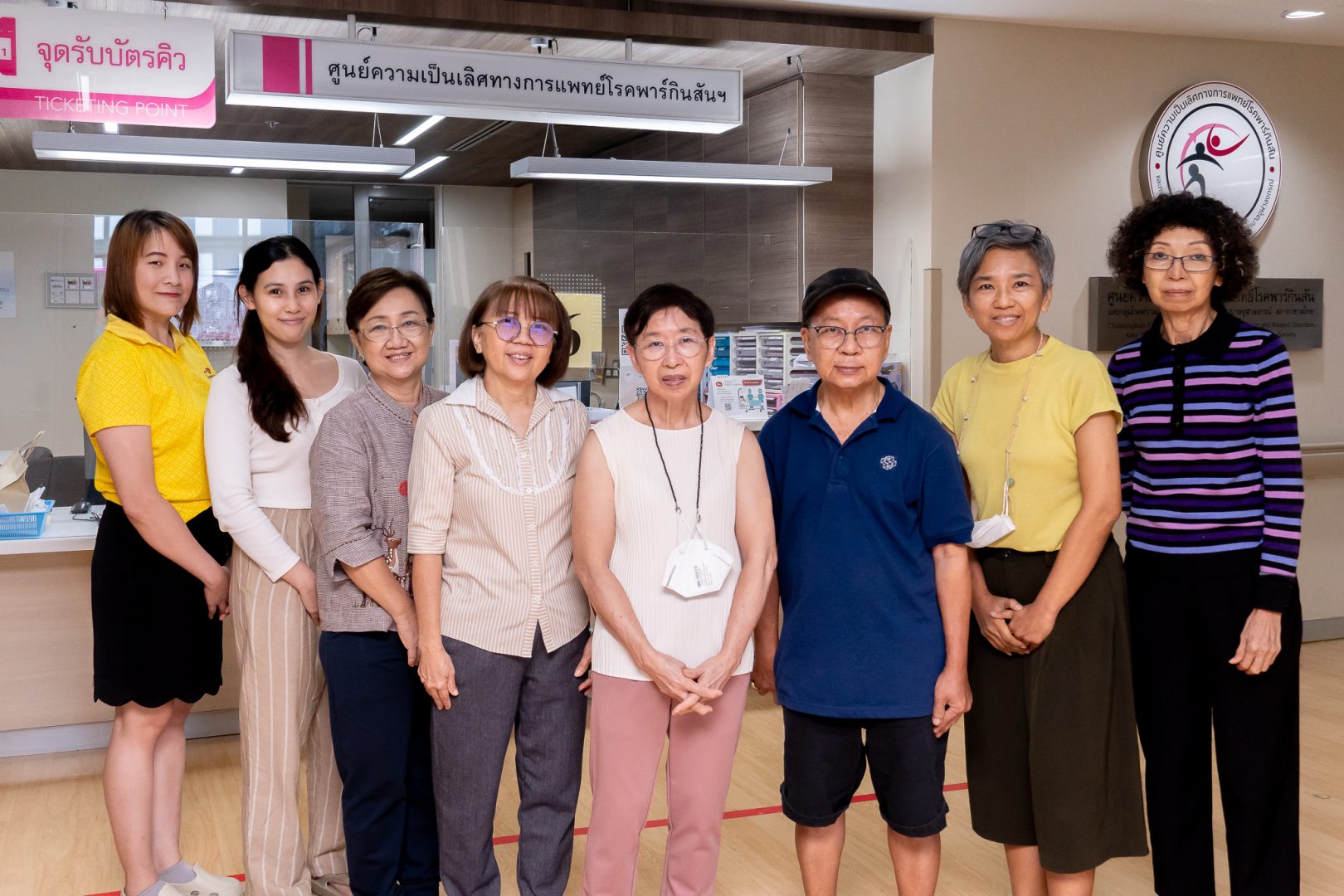
Having seen an importance of the holistic treatment, Dr. Rungroon Pittayasiri, MD, Head of Excellence for Parkinson’s Disease & Related Disorders established the Parkinson’s Friends Club in 2012 to provide patients a correct understanding of disease and symptoms as well as self-care for the wellbeing of the patient himself .The Parkinson’s Friends Club is a voluntary unit run by a committee consisting of patients, Medical personnel and social workers, aiming to improving the quality of life of patients.
From the beginning of the support among Parkinson’s disease patients at all diversities , the number of members of the Parkinson’s Friends Club registered and followed via social media channels is increasing. This is such a good indicator of the increasing awareness of Parkinson’s disease in Thai society. In addition, the annual academic conference and various activities are organized on a weekly basis such as physical therapy, art therapy, dance, department of therapy, music therapy, etc. The activities are warmly paid attention which it helps more effective treatment. The Parkinson’s Friends Club therefore focuses on improving the quality of life of Parkinson’s patients in Thai society through innovation and technology connecting the relationship between patients, caregivers and public.

